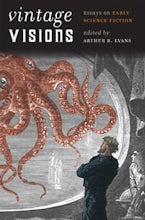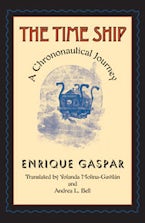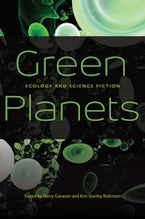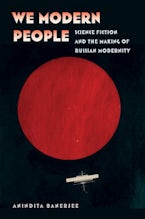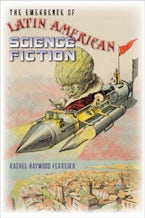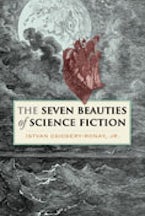- Home
- Early Classics of Science Fiction
- fiction
- literary criticism
- Colonialism and the Emergence of Science Fiction
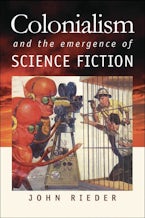
Colonialism and the Emergence of Science Fiction
Series: Early Classics of Science Fiction
Sales Date: 2008-05-30
Groundbreaking study of science fiction's relation to colonialism and imperialism
This is the first full-length study of emerging Anglo-American science fiction's relation to the history, discourses, and ideologies of colonialism and imperialism. Nearly all scholars and critics of early science fiction acknowledge that colonialism is an important and relevant part of its historical context, and recent scholarship has emphasized imperialism's impact on late Victorian Gothic and adventure fiction and on Anglo-American popular and literary culture in general. John Rieder argues that colonial history and ideology are crucial components of science fiction's displaced references to history and its engagement in ideological production. He proposes that the profound ambivalence that pervades colonial accounts of the exotic "other" establishes the basic texture of much science fiction, in particular its vacillation between fantasies of discovery and visions of disaster. Combining original scholarship and theoretical sophistication with a clearly written presentation suitable for students as well as professional scholars, this study offers new and innovative readings of both acknowledged classics and rediscovered gems.
Includes discussion of works by Edwin A. Abbott, Edward Bellamy, Edgar Rice Burroughs, John W. Campbell, George Tomkyns Chesney, Arthur Conan Doyle, H. Rider Haggard, Edmond Hamilton, W. H. Hudson, Richard Jefferies, Henry Kuttner, Alun Llewellyn, Jack London, A. Merritt, Catherine L. Moore, William Morris, Garrett P. Serviss, Mary Shelley, Olaf Stapledon, and H. G. Wells.
Chapter 1. Introduction: The Colonial Gaze and the Frame of Science Fiction
Chapter 2. Fantasies of Appropriation: Lost Races and Discovered Wealth
Chapter 3. Dramas of Interpretation
Chapter 4. Artificial Humans and the Construction of Race
Chapter 5. Visions of Catastrophe
Notes
Works Cited
JOHN RIEDER is a professor of English at the University of Hawai'i at M¯anoa.
"In Colonialism and the Emergence of Science Fiction, John Rieder has produced a commendably readable and intellectually robust contribution to the emerging field of 'postcolonial' studies in science fiction. Rieder employs interdisciplinary theory to best advantage and with minimal jargonizing."
~Keith Williams, The Wellsian
""All in all, Haywood Ferreira has produced a noteworthy text that will be of interest to students and scholars of Latin American literature. One need not be a science fiction devotee to appreciate the research and enthusiasm that went into the writing of this book.""
~Jeanie Murphy, Hispania
""These early scientific romances [The Time Machine, The Island of Dr Moreau, The War of the Worlds and The First Men in the Moon] have been analyzed time and again, from virtually every critical angle, but Rieder shows how a colonial reading provides fresh and valuable insight into them.""
~Paul Kincaid, Foundation
""In Colonialism and the Emergence of Science Fiction, John Rieder has produced a commendably readable and intellectually robust contribution to the emerging field of 'postcolonial' studies in science fiction. Rieder employs interdisciplinary theory to best advantage and with minimal jargonizing.""
~Keith Williams, The Wellsian
""Probably no single volume, and certainly none as succinct as this, could possibly develop all the arguments implicit here.""
~Carl Freedman, Extrapolation
"This takes science fiction criticism in a new direction by invoking sophisticated theories of colonialism, race, literature, and genre. Rieder's book will become one of the commonly cited authorities in the field."
~John Huntington, professor of English, University of Illinois at Chicago
"This takes science fiction criticism in a new direction by invoking sophisticated theories of colonialism, race, literature, and genre. Rieder's book will become one of the commonly cited authorities in the field."
~John Huntington, professor of English, University of Illinois at Chicago
"'Science fiction exposes what colonialism imposes.'—Rieder's compelling argument is at the forefront of the revitalized Marxist engagement with the fantastic and makes new a genre we thought we already knew. It is essential reading.""
~Mark Bould, University of the West of England

